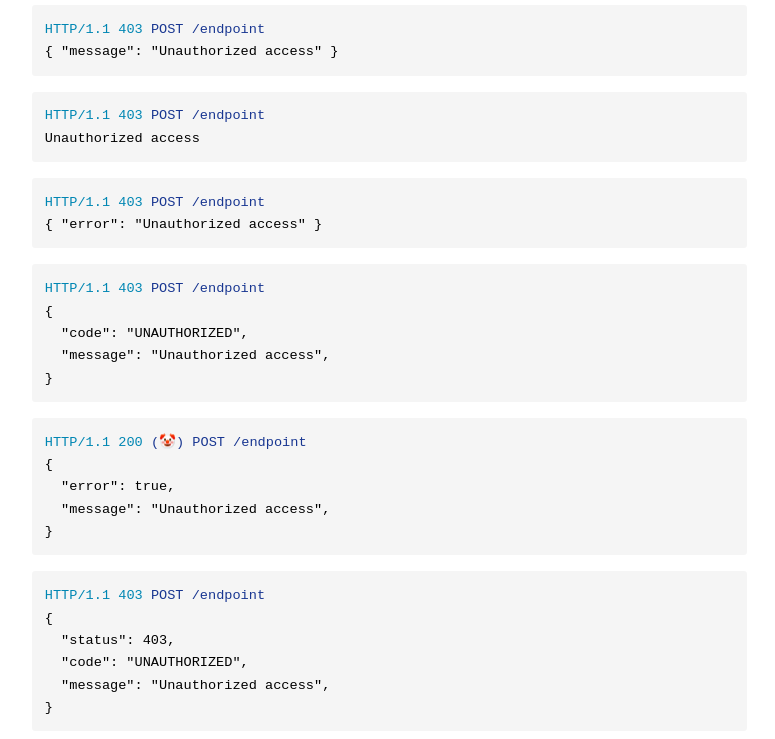this post was submitted on 30 Aug 2024
131 points (99.2% liked)
Programming
17667 readers
260 users here now
Welcome to the main community in programming.dev! Feel free to post anything relating to programming here!
Cross posting is strongly encouraged in the instance. If you feel your post or another person's post makes sense in another community cross post into it.
Hope you enjoy the instance!
Rules
Rules
- Follow the programming.dev instance rules
- Keep content related to programming in some way
- If you're posting long videos try to add in some form of tldr for those who don't want to watch videos
Wormhole
Follow the wormhole through a path of communities [email protected]
founded 2 years ago
MODERATORS
you are viewing a single comment's thread
view the rest of the comments
view the rest of the comments


I know of some people that never use 403, but instead opt for 404 for security reasons. 403 implies that there is something they could have access to, but don't.
I think in some situations that this can be valid, but it shouldn't be a crux.
404 is definitely also used sometimes for hiding stuff that shouldn't be seen, but 403 may still be appropriate for various stuff where there is nothing to hide. With 404 you probably also never want to give any explanation or error message.